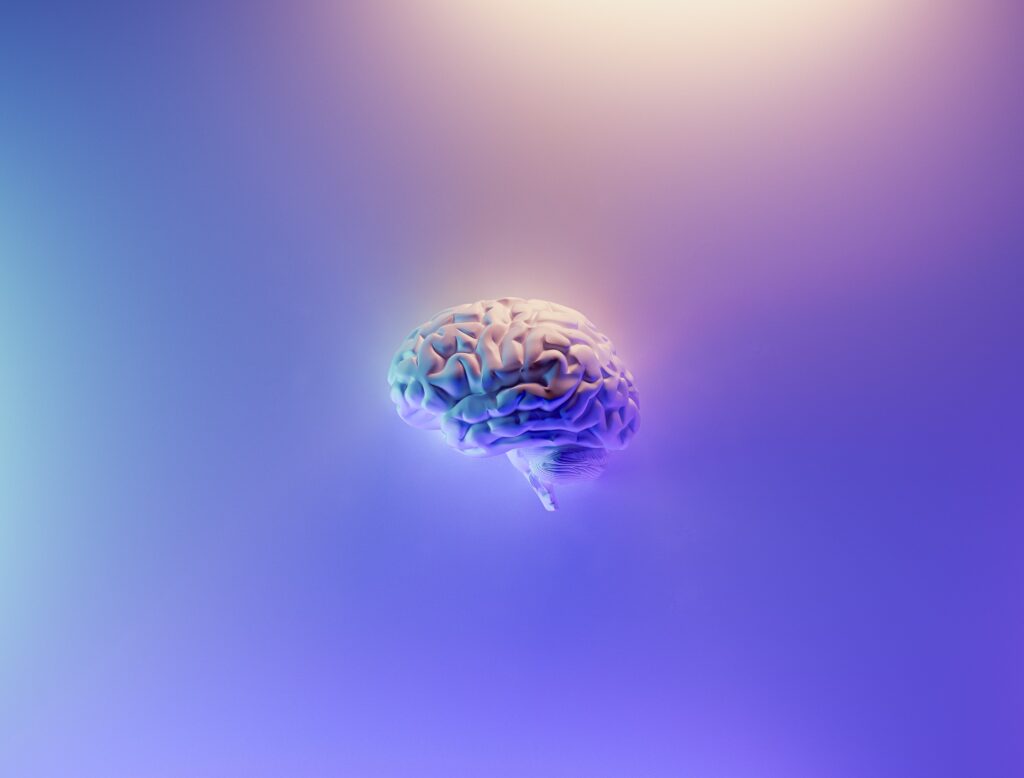Your mental agility is crucial when it comes to quick thinking and articulate expression. In this episode of 7 Good Minutes, we delve into the world of enhancing your cognitive power through various exercises and activities. Dr. Andrew Huberman discusses the impact of repetition and habits on brain function, while neuroscientist Jim Kwik provides insights into staying focused and composed. We also address the importance of preparation and decision-making in demanding situations. Join us on this exciting journey as we explore the power of mental agility and cognitive fitness, and discover tips on boosting rapid thinking, becoming articulate under pressure, maintaining clarity, and living calmly in high-pressure situations.
High-pressure situations are bound to occur in life, from interviews to networking events and dates. In this video, we aim to help you think faster and say the right things in those moments that matter. By changing your physical state and knowing the first thing you'll say in a high-pressure situation, you can handle these moments with calm and confidence. We also discuss the framework of a successful date, focusing on intrigue, sharing values, and building physical tension. By understanding these concepts, you'll be equipped to navigate various scenarios and enhance your mental agility and cognitive power. So come along and unlock your mind's secret potential with us!

The Impact of Mental Agility
Mental agility plays a crucial role in our everyday lives, affecting our ability to think critically, make quick decisions, and adapt to new situations. It refers to the ability to think quickly and flexibly, allowing us to process information efficiently and respond effectively. Whether it's in academia, professional settings, or personal life, mental agility can have a significant impact on our cognitive power and overall performance.
Understanding Mental Agility
Mental agility encompasses various cognitive skills, including problem-solving, reasoning, attention to detail, and working memory. It involves being able to quickly analyze and synthesize information, think creatively, and shift between different tasks or perspectives seamlessly. Individuals with high mental agility often have better cognitive flexibility, adaptability, and problem-solving abilities.
The Link Between Mental Agility and Cognitive Power
Research has shown a strong correlation between mental agility and cognitive power. Cognitive power refers to the brain's capacity to process and retain information, solve problems, and demonstrate intellectual acumen. The more mentally agile an individual is, the more effectively they can utilize their cognitive power. Mental agility enables us to process information faster, make connections between different concepts, and retain knowledge more efficiently, ultimately leading to enhanced cognitive performance.
Exercises to Improve Mental Agility
Just like physical exercise strengthens and tones our muscles, specific exercises can help improve mental agility. By incorporating these exercises into our daily routine, we can sharpen our cognitive skills and boost our mental flexibility.
Repetition and Habit Formation
Repetition is a powerful tool for improving mental agility. By repeating tasks or actions consistently, we can increase our speed and efficiency in completing them. For example, setting a goal to read a certain number of pages each day or practicing a musical instrument for a set amount of time can help train our minds to process information or perform tasks more quickly.
Brain Training Games
Brain training games, such as puzzles, memory games, and logic exercises, are designed to challenge and stimulate our cognitive abilities. These games can enhance mental agility by encouraging us to think critically, solve problems, and improve our memory and attention to detail. Many online platforms and mobile applications offer a wide range of brain training games specifically designed to improve mental agility.
Puzzles and Mind Teasers
Engaging in puzzles and mind teasers, such as crosswords, Sudoku, and riddles, can be highly beneficial for mental agility. These activities require us to think analytically, make connections, and find solutions within a given time frame. Regularly solving puzzles can enhance our problem-solving skills, boost our cognitive flexibility, and improve our ability to think quickly and creatively.
Speed Reading
Speed reading is a technique that allows us to read and comprehend information at a faster pace. By training ourselves to read more efficiently, we can improve our mental agility by processing information more rapidly. Speed reading techniques involve eliminating subvocalization, using peripherals to capture more words at once, and practicing active reading strategies. Through regular practice, we can enhance our reading speed and absorb information more effectively.
Meditation and Mindfulness
Practicing meditation and mindfulness can have a significant impact on mental agility. These techniques help us focus our attention, reduce stress, and improve cognitive function. By training our minds to be present and aware, we can enhance our ability to concentrate, process information quickly, and think with clarity. Regular meditation and mindfulness practices can also enhance our resilience to stress and improve overall mental well-being.
Enhancing Thinking and Speaking Speed
Thinking and speaking quickly are essential skills in various aspects of life, from academia to professional settings. Enhancing our thinking and speaking speed can improve our mental agility and allow us to communicate our thoughts more effectively.
Speech Exercises
Engaging in speech exercises, such as tongue twisters and rapid-fire question sessions, can improve our speaking speed and clarity. These exercises challenge our ability to think quickly and articulate our thoughts fluently, helping to develop our communication skills. By practicing speech exercises regularly, we can enhance our ability to speak confidently and quickly respond in various situations.
Thought-Stimulating Activities
Participating in activities that stimulate our thought processes can significantly enhance our thinking speed. Engaging in debates, brainstorming sessions, or engaging in discussions on thought-provoking topics can challenge our minds to think quickly and formulate coherent responses under time constraints. These activities encourage us to analyze information, synthesize ideas, and express our thoughts efficiently.
Language Learning
Learning a new language is an excellent way to enhance both thinking and speaking speed. When learning a new language, we have to think quickly to understand and respond appropriately. This process trains our brain to process information rapidly and communicate our thoughts efficiently. Language learning also enhances cognitive flexibility and improves memory and problem-solving skills.
Practicing Quick Decision-Making
Making quick decisions is an essential aspect of mental agility. Practicing decision-making in various scenarios can help improve our ability to think rapidly and make effective choices. Engaging in activities such as improvised storytelling, rapid-fire problem-solving, or playing strategy games can enhance our quick decision-making skills. By consistently practicing quick decision-making, we can train our minds to process information rapidly and make informed choices swiftly.
Preparation and Decision-Making in Demanding Situations
Preparing for demanding situations and having efficient decision-making strategies are vital for maintaining mental agility and performing well under pressure.
Importance of Preparation
Preparation plays a crucial role in developing mental agility. When we are well-prepared, we have a solid foundation of knowledge and skills to rely on, allowing us to analyze information and make decisions more efficiently. Adequate preparation increases our confidence, reduces stress, and enables us to think more clearly when faced with challenging situations.
Decision-Making Strategies
Developing effective decision-making strategies is essential for maintaining mental agility in demanding situations. Having a structured approach to decision-making can help us evaluate options, gather relevant information, consider potential outcomes, and make a choice efficiently. Tools such as decision matrices or pros and cons lists can assist in making well-informed decisions quickly. By practicing and refining our decision-making strategies, we can improve our ability to think critically and make swift decisions.
Managing Stress and Pressure
Stress and pressure can significantly impact mental agility. When faced with demanding situations, it is essential to have strategies in place to manage stress effectively. Techniques such as deep breathing, visualization, and positive self-talk can help reduce stress levels and maintain mental clarity. Additionally, incorporating relaxation practices like exercise, mindfulness, or engaging in hobbies can contribute to overall well-being and support mental agility in high-pressure situations.

Insights from Neuroscientist Jim Kwik
Renowned neuroscientist Jim Kwik has provided valuable insights into enhancing mental agility and maintaining composure under pressure. His expertise sheds light on techniques and strategies that can help individuals develop mental clarity and perform at their best.
Staying Focused under Pressure
According to Jim Kwik, staying focused under pressure is crucial for mental agility. He suggests that practicing mindfulness and being fully present in the moment can help us maintain focus, even in high-stress situations. By training our minds to stay in the present, we can avoid distractions, improve concentration, and make more effective decisions.
Maintaining Composure
Maintaining composure is essential for mental agility, especially when facing challenging circumstances. According to Jim Kwik, staying calm and collected allows our brains to function optimally. Techniques such as deep breathing, positive self-talk, and visualization can assist in maintaining composure and enhancing mental agility in stressful situations. By practicing these techniques regularly, we can develop the ability to stay composed and think clearly in demanding scenarios.
Techniques for Mental Clarity
Jim Kwik emphasizes the importance of mental clarity in improving mental agility. Engaging in activities that promote mental clarity, such as meditation, deep breathing exercises, and journaling, allows us to declutter our minds and strengthen our cognitive abilities. By incorporating these techniques into our daily lives, we can enhance mental clarity, improve focus, and boost overall mental agility.
The Power of Mental Agility
The benefits of developing and maintaining mental agility are far-reaching, influencing various aspects of our lives.
Benefits of Mental Agility
Mental agility offers numerous benefits, including improved problem-solving skills, enhanced creativity, and increased adaptability. It allows us to process information quickly, make faster decisions, and respond effectively to changing circumstances. Individuals with high mental agility often experience better cognitive performance, increased productivity, and improved overall well-being.
Improving Cognitive Fitness
Mental agility exercises and techniques contribute to improving cognitive fitness. Just as physical exercise improves physical fitness, the regular practice of mental agility exercises strengthens our cognitive abilities. It enhances memory, attention, and concentration, which are crucial components of cognitive fitness. By engaging in activities that stimulate the brain and challenge our thinking processes, we can boost our cognitive fitness and overall brain health.
Enhancing Overall Brain Function
Developing mental agility has a positive impact on overall brain function. It improves the brain's ability to process information efficiently, leading to better decision-making, problem-solving, and critical thinking. Mental agility exercises also stimulate the growth of new neural connections and improve synaptic plasticity, which is essential for maintaining cognitive function and preventing cognitive decline.

Boosting Rapid Thinking and Articulacy
Developing rapid thinking and articulacy skills is beneficial in both personal and professional settings. It allows us to communicate more effectively and respond swiftly in various situations.
Mental Flexibility Exercises
Engaging in mental flexibility exercises can significantly improve rapid thinking and articulacy. These exercises involve challenging ourselves to think outside the box, consider multiple perspectives, and adapt our thinking quickly. Activities such as improvisational theater, mind mapping, and generating alternative solutions to problems can enhance mental flexibility and improve our ability to think rapidly and articulate our thoughts clearly.
Improving Verbal Fluency
Verbal fluency is the capacity to express thoughts and ideas fluently and coherently. Developing verbal fluency involves practicing expressing ideas quickly and clearly. Engaging in activities such as impromptu speaking, storytelling, or group discussions can enhance verbal fluency and train our minds to articulate thoughts rapidly and effectively. Consistent practice is key to improving verbal fluency and boosting rapid thinking skills.
Developing Quick Response Skills
Developing quick response skills allows us to think on our feet and respond rapidly to unexpected situations. Engaging in activities that require quick reactions, such as playing rapid-response video games or participating in improvisational exercises, can improve our ability to think swiftly and respond effectively. By continuously challenging ourselves and practicing quick response skills, we can enhance our mental agility and develop a quick thinking mindset.
Maintaining Clarity under Pressure
Maintaining mental clarity in high-pressure situations is crucial for making effective decisions and performing well. Several techniques can help us stay focused and clear-headed.
Visualization Techniques
Visualization techniques can be highly effective in maintaining mental clarity under pressure. By visualizing successful outcomes, managing stress, and imagining ourselves in control of the situation, we can enhance our confidence and mental agility. Regular practice of visualization techniques can improve our ability to stay calm and focused when faced with demanding circumstances.
Breathing Exercises
Deep breathing exercises are simple yet powerful techniques for maintaining clarity under pressure. By focusing on our breath and taking slow, deep breaths, we can activate our body's relaxation response and reduce stress levels. Deep breathing not only provides oxygen to the brain but also helps regulate our emotions and maintain mental clarity in challenging situations.
Mental Focus Strategies
Implementing mental focus strategies can significantly improve our ability to maintain clarity under pressure. Techniques such as setting clear goals, breaking tasks into manageable steps, and prioritizing can help us stay focused and avoid being overwhelmed by stress. Additionally, eliminating distractions and creating a conducive environment for concentration can further enhance mental focus and agility.
Living Calmly under Pressure
Apart from maintaining clarity, managing stress and building resilience are essential for living calmly under pressure. These practices contribute to overall mental well-being and support mental agility.
Stress Management Techniques
Developing effective stress management techniques is crucial for living calmly under pressure. Engaging in activities such as exercise, mindfulness meditation, and relaxation exercises can significantly reduce stress levels. Prioritizing self-care and ensuring an appropriate work-life balance are also important in managing stress effectively. By incorporating stress management techniques into our daily routine, we can build resilience and maintain a calm mindset even in demanding situations.
Emotional Regulation
Emotional regulation is an important aspect of living calmly under pressure. By developing strategies to manage our emotions and respond appropriately in challenging situations, we can maintain mental agility. Techniques such as journaling, seeking support from trusted individuals, and practicing self-compassion can improve emotional regulation and allow us to navigate high-pressure situations more effectively.
Building Resilience
Building resilience is key to maintaining mental agility and thriving under pressure. Resilience refers to our ability to bounce back from adversity and adapt to challenging circumstances. Engaging in activities that increase self-awareness, foster a growth mindset, and promote problem-solving skills can enhance resilience. By building resilience, we cultivate a positive mindset, maintain mental clarity, and strengthen our ability to perform under pressure.
Conclusion
Mental agility is a powerful cognitive ability that significantly impacts our overall performance, problem-solving skills, and decision-making abilities. By incorporating exercises to improve mental agility into our daily routine, we can enhance our thinking and speaking speed, maintain clarity under pressure, and live calmly in demanding situations. It is crucial to practice these strategies consistently and take proactive steps to improve our mental agility, as it plays a vital role in our personal and professional success. So, let's take action and unleash the power of our minds to achieve our full potential!

